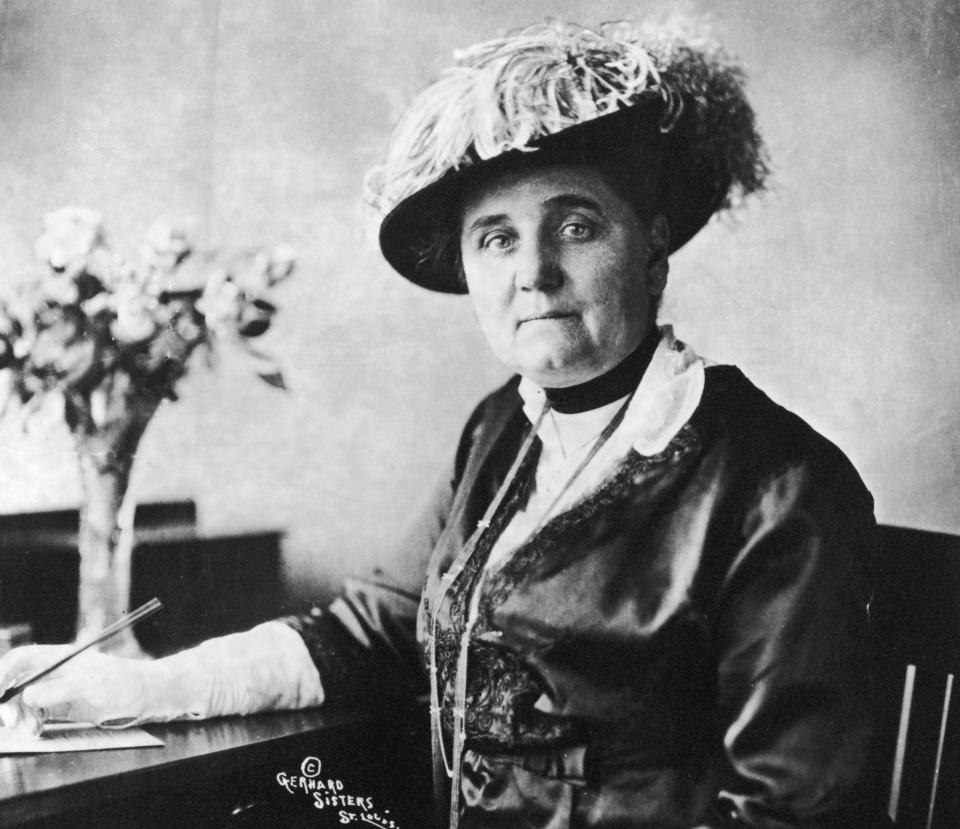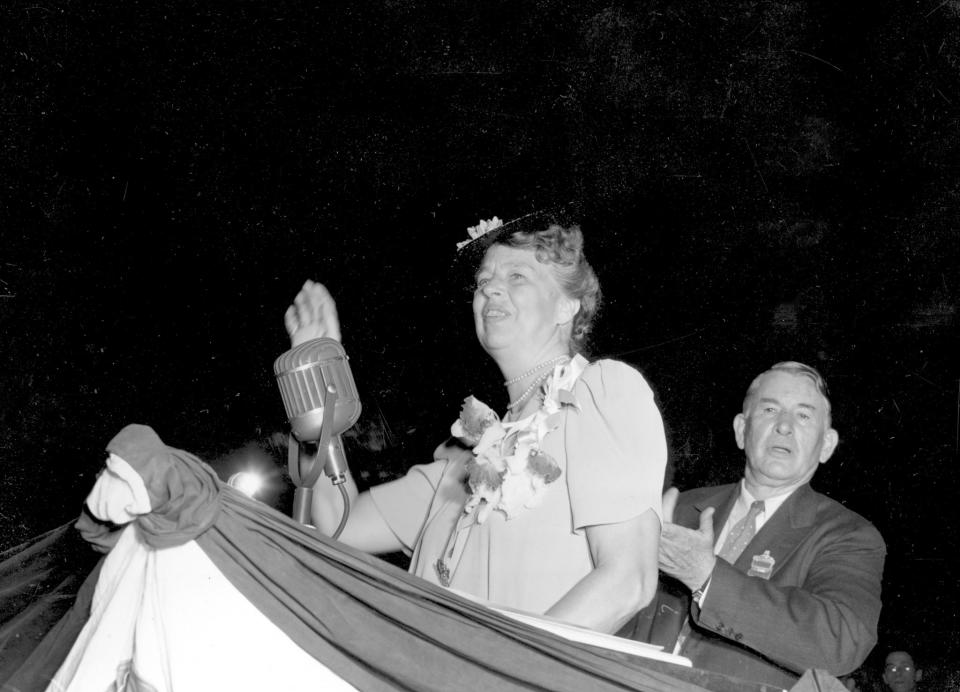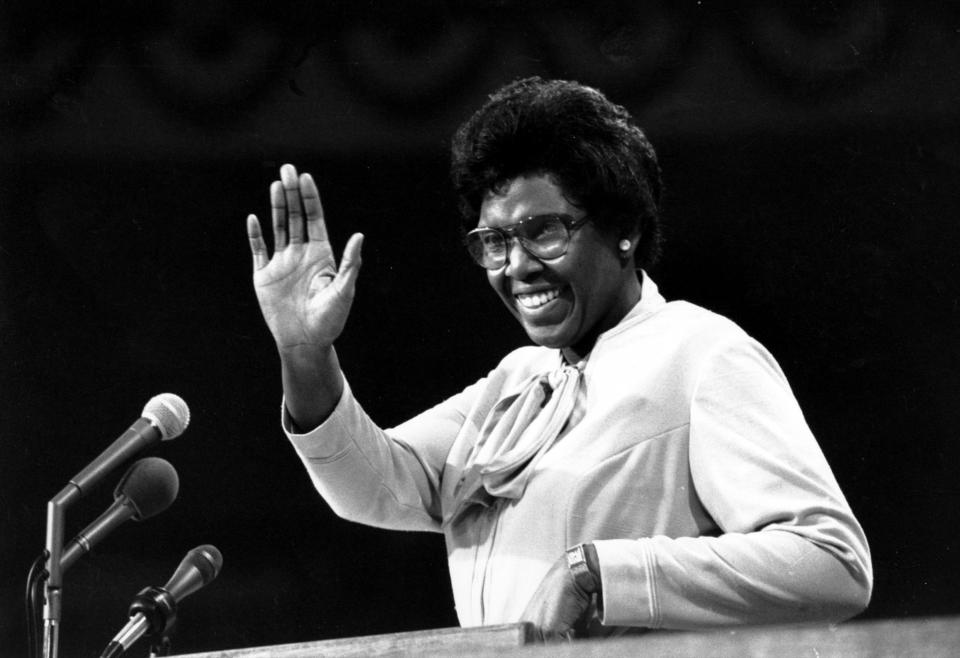Hillary opens the ultimate door for women, but some are still left behind

Hillary Clinton is the first woman major-party presidential nominee. She broke the hardest of all glass ceilings. She is running on her identity and life experiences, invoking her years as a first lady, United States senator, secretary of state and her roles as a daughter, mother and grandmother.
That’s all true, but it conveys only a fraction of the potential significance and complexity of the moment Thursday night when she accepts the Democratic nomination. On Friday, women will still constitute less than 20 percent of all members of Congress, and Hillary Clinton’s historic achievement doesn’t change the persistence of gender inequality in 21st century American politics.
It’s a good time to take stock of how far the country has come and how much further the country still must travel to achieve real equality. When it comes to politics and gender, much has changed for the better over the past century, of course. And presidential conventions have been one conspicuous avenue for women to advance in political life.
Since the early 19th century, women were largely absent from the convention stage. Theodore Roosevelt, who fought for greater political participation by women, had his nomination at the 1912 Progressive Party convention seconded by the pioneering social worker Jane Addams. He wrote her: “In this great National Convention, starting the new [Progressive] party, women have thereby been shown to have their place to fill precisely as men have, and on an absolute equality.”

He was right. But the work women did at conventions remained mostly hidden from public view. University of Maryland historian Robyn Muncy, author of “Relentless Reformer: Josephine Roche and Progressivism in 20th-Century America,” points out that “women activists have long been using conventions to get their concerns into party platforms.” This mattered. It included “behind-the-scenes work … [at] the 1940 Democratic convention, when female party leaders held their own meeting … and devised a platform that was more progressive than the final version of the party’s. All but two of the women’s recommendations did go into the final platform [and] included support for women’s right to paid labor and to creating greater equality for women and men in the workplace.”
Eleanor Roosevelt delivered the first presidential spouse convention address that year. Talking from a sheet of hand-written notes, she urged unity on a party divided by FDR’s nomination of progressive Henry Wallace as vice president. “This is the time when it is the United States that we fight for,” she reminded delegates, claiming unity was vital because the present was “no ordinary time,” a reference to the outbreak of World War II overseas.
Other important convention moments have advanced the struggle for gender equality in politics. These moments, however, have typically not been primetime convention addresses.

In 1964, as Muncy observes, civil rights leader Fannie Lou Hamer addressed the Democratic convention’s credentials committee. “She argued that the Mississippi Freedom Democratic Party’s delegation should be seated instead of the all-white Mississippi regulars’ delegation,” explains Muncy. “Her presentation was so powerful that LBJ interrupted its broadcast on national TV to make an announcement of his own. In the end, the compromise on representation at future conventions that Mrs. Hamer’s speech prompted helped to empower minorities in the Democratic Party.” And that, of course, was at least a small factor in making possible the baton-passing moment between President Obama and Democratic nominee Clinton Wednesday night.
In 1976, Texas Democratic Congresswoman Barbara Jordan became the first woman and first African-American to keynote any convention. She opened her remarks with a reflection on her breakthrough. “What is special about tonight?” she asked. “I, Barbara Jordan, am a keynote speaker.”
In spite of the nation’s history of racism and gender discrimination, she went on to say, in a forerunner to President Obama’s 2004 and 2016 convention speeches, “my presence here is one additional bit of evidence that the American Dream need not forever be deferred.” Subsequent conventions added some more cracks in the glass ceiling that Clinton has so decisively crashed through. Geraldine Ferraro’s nomination for vice president in 1984 marked the first time a woman joined a major-party ticket. Sarah Palin’s 2008 Republican convention address represented the first time a woman had been put on the Republican ticket.

In spite of this genuine progress, the reality is that Hillary Clinton’s acceptance address is both a major step forward for women’s equality and a reminder that, as Muncy says, “the going has been very tough, and no single speech has forced much change. That less than 20 percent of Congress is female in a country where women are at least half the eligible voters and are the majority of actual voters tells us that politics remains one of the arenas most resistant to women’s authority.” Muncy calls Clinton’s nomination unquestionably “a milestone.” She also reminds us that Clinton’s “nomination will not necessarily guarantee that the door to political power has swung wide open for other women. Only continuing struggle will produce that result.”
Clinton’s acceptance speech Thursday night in Philadelphia ensures that that struggle continues.
_____
Matthew Dallek, an associate professor at George Washington University’s Graduate School of Political Management, is author of “Defenseless Under the Night: The Roosevelt Years and the Origins of Homeland Security.”
_____
Related slideshows:
On the ground at the DNC — a photo report >>>
How newspapers covered the third day of the DNC >>>
A selfie with Hillary? No problem >>>
How newspapers covered the historic second day of the DNC >>>
Bernie Sanders’ supporters make a last stand >>>
Sanders supporters weep at DNC >>>
How newspapers covered the DNC’s first big day >>>
Demonstrators protest outside the DNC >>>


